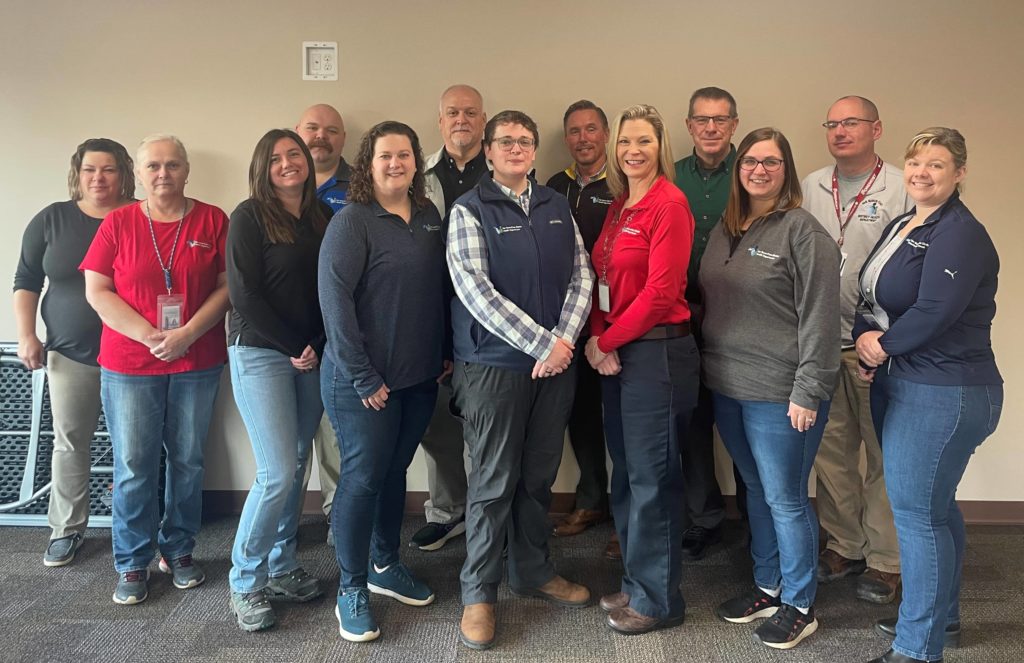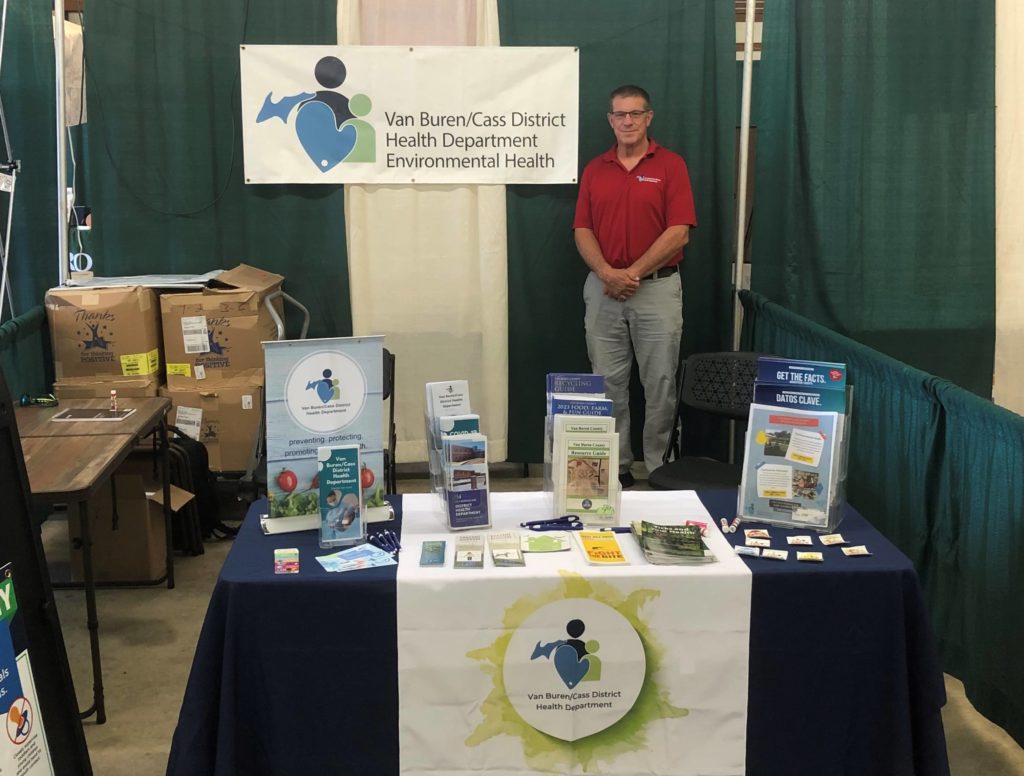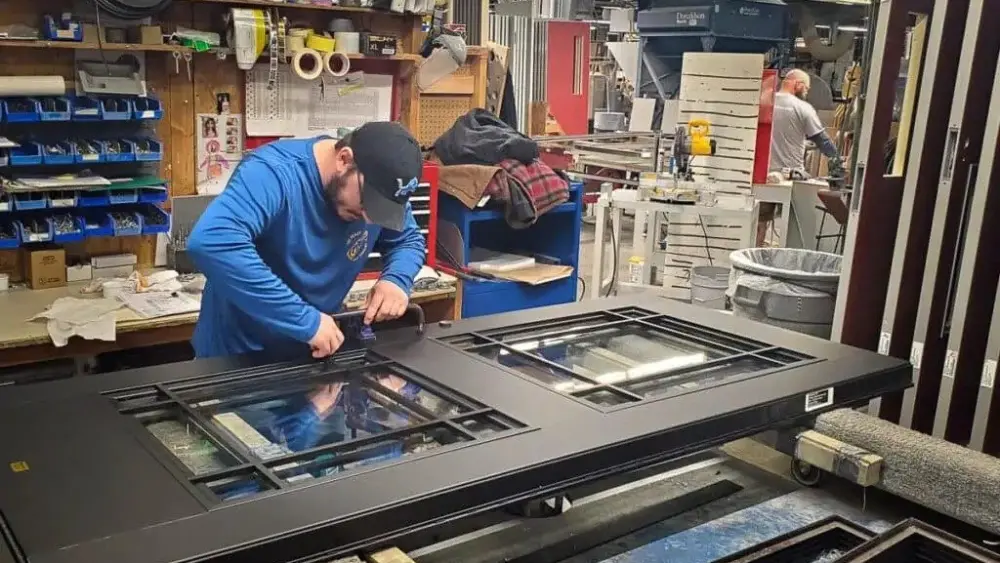
When people go out to eat, it’s often a treat or a special occasion. When people go swimming, it’s for fun and exercise. When people use a toilet, few think twice about where the plumbing transports the waste. For all those situations, what people don’t want is an outcome that makes someone sick or, worse yet, lands them in the hospital. That’s why the Van Buren/Cass District Health Department has an environmental health team.
Environmental Health Director George Friday leads the team that is responsible for water and septic inspections, food sanitation, and soil evaluation, among other related services. They’re often thought of as the last line of defense between public safety and a health hazard.
George Friday, Director of the Van Buren/Cass District Health Department’s Environmental Health division, leads the team that’s constantly fielding requests for operating permits and questions about recent inspections relating to environmental health situations.
A large part of the role of the Environmental Health team is to inspect and review food service operations. Friday says it starts at the planning stages of a new restaurant, eatery, or food truck, and runs all the way through operation stages. He says their goal is to make sure the end product is safe to eat.
“Usually, we’re painted as the bad guy. In reality, our whole plan is to keep you open and we’re trying to find different ways that will help you continue to stay in business. And that’s the biggest thing that we have to explain to people when we go out and introduce ourselves.”
Health department team members will work with establishment operators closely through the planning and opening. Then team members will perform regular check-ins to make sure “they’re holding their standards.”
“When it comes to food safety and public eating establishments, we meet with the establishment operators at the outset,” said Friday. “We help them by going through a plan review, we provide food safety education and follow-up, and we make sure that they’re on the right path. We ask questions like, ‘Is what you’re designing going to help you meet health and safety standards.’ And we go from there.”
The team is also responsible for beach monitoring to check for E. coli content in the water and other potential public health hazards.

“We test the water at the four public beaches in the South Haven/Covert area, and we post the results on our website. E. coli can be produced in the waters by bird waste or human waste, and so if the E. coli levels are too high in the water, that could lead to a beach shut down for a temporary time.”
Health officials also monitor health risks potentially posed by insects, including mosquitoes and ticks.
“What we’re looking for is mosquitoes that carry the (Eastern Equine Encephalitis) virus. That’s our focus with mosquitoes. A few years ago we had a triple E outbreak and our area of the state was one of the larger outbreak areas. For ticks, there are several diseases we’re monitoring for. We’re proactive to hopefully see things coming before it becomes an issue.”
Another area the department handles is well and septic systems. The team works with owners and contractors to issue permits, as well as evaluate sites, design the system, locate the area for installation, and inspect the final work. Officials say this ensures proper design, installation, maintenance, and monitoring to aid in the prevention of water-related diseases, water pollution, and communicable diseases caused by human waste
“We try to come across as problem solvers, not problem makers. You come to us with a failed system, a food safety question, or a concern about something else happening in the environment, we pride ourselves in finding ways to help and get you back to your activity as quickly as possible.”
You can learn more by listening to this podcast episode.







